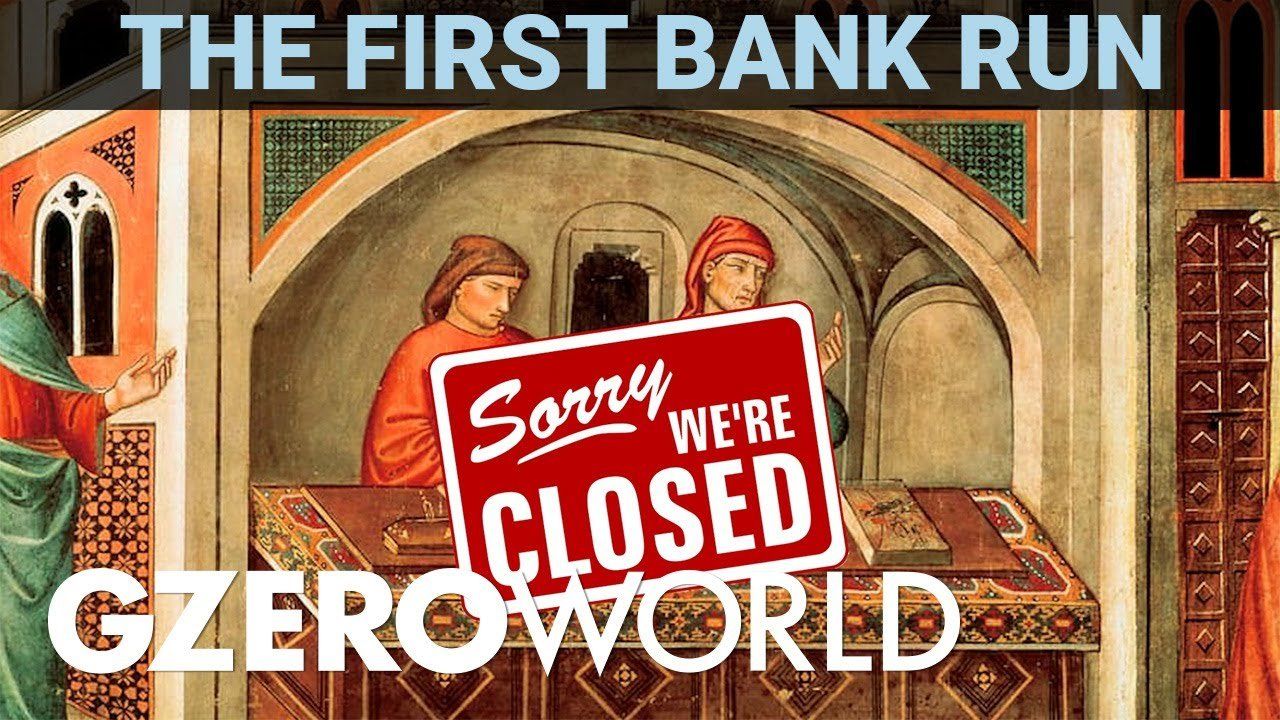GZERO World Clips
Medieval Italy, the Peruzzis & the world's first bank run

The world's first bank run: the Peruzzis of medieval Italy | GZERO World

Bank runs. Market volatility. Panic in the streets. When I say we’ve been here before, I don’t just mean 2008 or 1929. One of the earliest recorded bank runs dates back to the 14th century. Italian city-states like Florence and Venice sat at the crossroads of trade routes between Asia and Europe and were financial hubs. In the early 1300s, the “Peruzzi” family quickly became one of the most powerful and wealthy in Florence, through a highly profitable textile trade that focused on imported English wool.
As their wealth grew, so did their banking network, extending throughout Europe and even to England’s King Edward the Third. King Edward at the time was embroiled in a series of expensive wars with France, which the Peruzzi's increasingly bankrolled. Unfortunately, King Edward’s appetite for battle and glory was bigger than his purse, and when he failed to pay his debts in 1345, the Peruzzi bank took a massive financial hit.
Word soon got back to Florence about the deadbeat English king. Depositors panicked, rushing to withdraw their florins before the Bank of Peruzzi ran out of funds. A bank-run ensued and, soon after, the House of Peruzzi was ruined.
The reason you’ve probably never heard of the Peruzzi's until now has quite a bit to do with the Florentine family that rose to power soon after their fall. The House of Medici [meh·duh·chee] became one of the wealthiest and most powerful families in Renaissance Europe in part by learning from the Peruzzi’s mistakes. Where the Peruzzi's focused heavily on speculative investments and individual clients (ahem, Edward the Third, ahem), the Medicis diversified their portfolio across a range of industries and regions, which protected them from risk and market volatility.
Fast-forward to today and the same pitfalls that the Peruzzi’s faced exist for modern banks that rely on overextended credit and speculation. I mean, what is crypto if not today’s version of English wool? And whether you’re the House of Peruzzi or Silicon Valley Bank, one thing is clear. Stay the heck away from the King of England.
Somewhere in the Donbas region, Ukrainian soldier Artem Bondarenko says he hasn’t slept through the night in months as he defends Eastern Ukraine.
In the latest episode of Vladimir Putin and Xi Jinping's hit wellness podcast This Authoritarian Life, we learn how positive communication patterns can break negative cycles in our relationships -- especially our relationships with Iran, Syria, Venezuela, and Cuba. #PUPPETREGIME
Israel indirectly warned Lebanon that it would strike its northern neighbor hard if the Iran-backed militia group Hezbollah gets involved in any future US-Iran conflict, two Lebanese officials told Reuters.